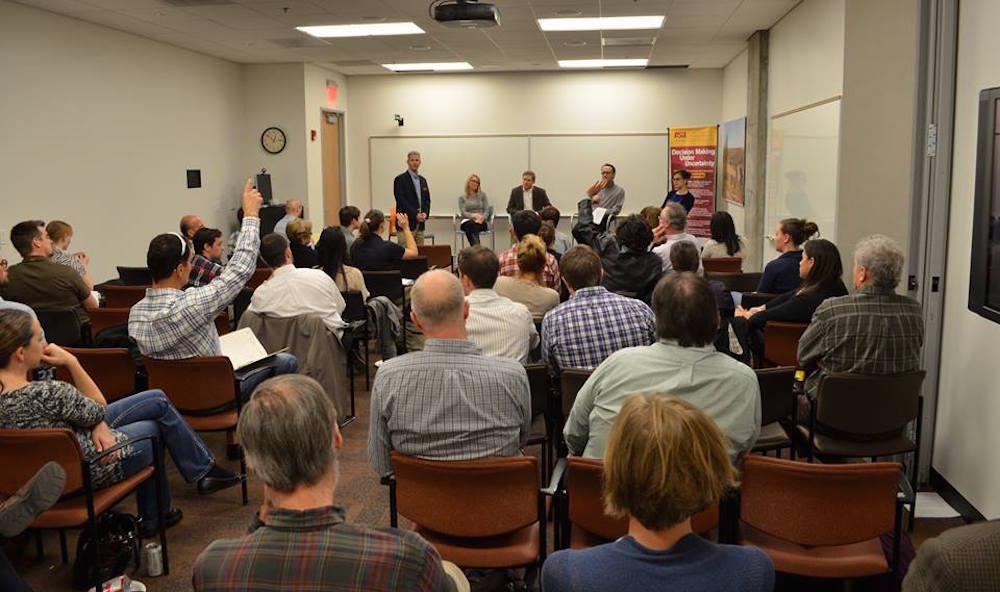
Outreach & Education
An important component of The Human Generosity Project is sharing our knowledge and understanding of human generosity with the broader public and applying this knowledge to areas in which may have an important impact. The HGP organizes outreach activities to apply our emerging understanding of human sharing in times of need to topics including resource management and disaster recovery. Most recently, Project members worked with the Exploratorium science museum in San Francisco to develop “The Survival Game,” an interactive exhibit based on the Maasai osotua system that teaches visitors about the adaptive value of generosity toward those in need.
Our outreach and education efforts include:
![]()
Resource Management
The effective management of limited resources often requires sharing among individuals and groups. We are applying the concept of need-based transfers to the problem of water management in the Phoenix metropolitan area with the goal of assessing whether human sharing systems from small-scale societies can be applied to modern resource management challenges. This work is in collaboration with Dave White and other researchers at ASU’s Decision Center for a Desert City (DCDC).
![]()
Museum Exhibits
The Exploratorium science museum in San Francisco recently installed “The Survival Game,” an interactive exhibit based on the work of the Human Generosity Project. Museum visitors take the role of Maasai herders, managing virtual herds in a volatile environment and making and responding to requests for help from other players. The exhibit is part of the museum’s “The Science of Sharing” area, for which HGP co-directors Athena Aktipis and Lee Cronk have served as Science Advisors for several years. For more information about The Survival Game, check out Hugh McDonald’s blog post.
![]()
Disaster Recovery
Giving and helping is often an essential component of effective recovery from natural or man-made disasters including hurricanes, floods, earthquakes and wartime. The Human Generosity Project team is collaborating with disaster recovery experts including Keith Tidball of Cornell University to better understand the challenges and opportunities for leveraging human generosity during times of intense need.
